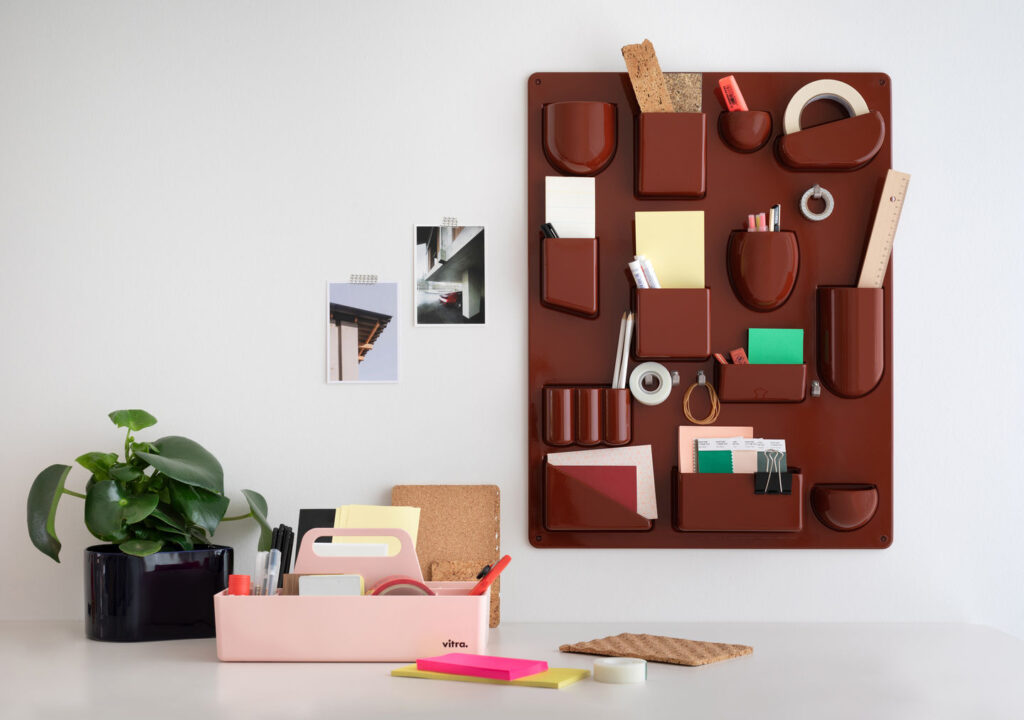
There was a time when the world was full of little things, practical and not so practical. Some were simply loved, others constantly needed; still others were superfluous but there nonetheless. Some were deliberately collected, others, as if magical powers were at play, suddenly found themselves. All these things, if they were to be available when needed, had to be put into a reasonably manageable order. The designer Dorothee Maurer-Becker created one possibility in 1969 with her “Utensilo”. Whether in the larger or smaller version, whether in the bathroom, the office, the children’s room or the craft room, the silo not only keeps this and that within easy reach, it also displays them in the most beautiful way. As one of the most famous plastic designs of the late 1960s, the Utensilo has long been a classic. It came about rather by accident: “Inspired by the spirit of the ’68 movement,” says Dorothee Becker, who was married to the lighting designer Ingo Maurer at the time, “I had designed a wooden toy in 1968 that consisted of a large wooden plate with geometrically shaped cutouts and corresponding counterparts.” Until 1989, Becker produced the organising piece herself in her own company; since 2001, the Uten.Silo has been manufactured by Vitra.
As her daughter Claude Maurer announced on LinkedIn, Dorothee Becker, born in Aschaffenburg in 1938, passed away on 29 March. She had studied languages in Frankfurt and Munich; after stays in London and Paris, she moved to California in 1960. She returned to Germany with her husband Ingo Maurer. In the short obituary of her mother, Claude Maurer, after pointing out the difficult situation of a working mother, writes: “She was a feminist and attached great importance to her daughters not being trained to be girls ‘in pink’. She loved taking long walks in nature and skating on frozen lakes in winter. After the very stressful divorce, she used her strong sense of aesthetics and her talent and opened a shop in Munich-Schwabing, as she had to earn her own living and that of her children (proportionally). Her motto was “Practical & Beautiful”. She offered things for the home & garden that were still hard to find in Germany in the 1970s and 1980s, and combined this with a carefully curated selection of art postcards.” Dorothee Becker was proud and happy when Vitra decided to reissue her Utensilo, she says. Since she only had a small pension, the licence fees were a very welcome source of income.
More on ndion
Discover more articles on the topic of design as well as current exhibitions.
Share this page on social media:

